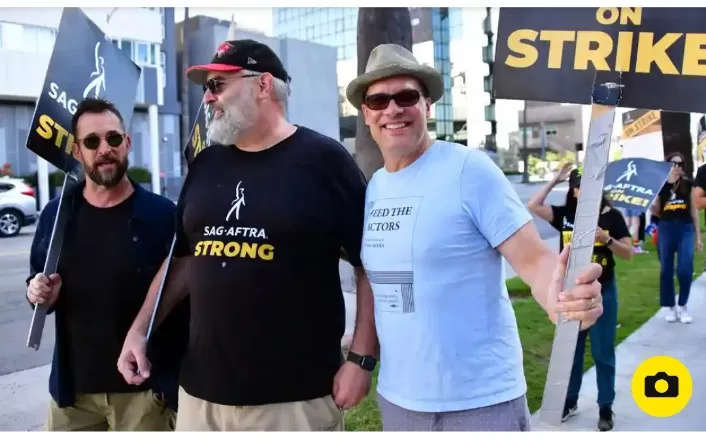Hollywood, California – Negotiations between Hollywood’s major studios and the Screen Actors Guild-American Federation of Television and Radio Artists (Sag-Aftra) union have come to an abrupt halt, marking a critical setback in attempts to resolve a three-month work stoppage. Key issues include streaming revenue, the utilization of artificial intelligence, and other industry-altering matters.
The work stoppage, which began in July, has had far-reaching consequences, halting the majority of U.S.-based film and television production, causing substantial economic losses in California, and leaving thousands of crew members unemployed.
Hopes were raised when the Writers Guild of America (WGA) ended its strike, sparking expectations for a speedy resolution with the actors. However, optimism waned as the Alliance of Motion Picture and Television Producers (AMPTP), representing major entities like Netflix and Walt Disney, announced the suspension of talks after reviewing the latest union proposal.
The AMPTP stated, “After meaningful conversations, it is clear that the gap between the AMPTP and Sag-Aftra is too great, and conversations are no longer moving us in a productive direction.”
Sag-Aftra responded in a letter to its members, expressing their disappointment and stating that the industry CEOs had walked away from the bargaining table after refusing to counter their latest offer.
One contentious issue is Sag-Aftra’s demand for a share of streaming revenue to be provided as a bonus to cast members. The AMPTP contested that this proposal would cost more than $800 million annually, creating an economically unsustainable burden.
In response, Sag-Aftra argued that the AMPTP had exaggerated the cost by 60% and accused the studios of employing “bully tactics.”
The union also asserted that studios “refuse to protect performers from being replaced by AI,” while the AMPTP claimed it had promised to secure actors’ consent before using any digital replicas of their likenesses.
On matters such as general wage increases and residuals for high-budget streaming shows, the AMPTP maintained that they had offered the same terms ratified by the WGA and the Directors Guild of America, but these were rejected by Sag-Aftra.
Meanwhile, members of the WGA recently approved a new three-year contract with major studios, offering pay raises, certain AI-use protections, and other gains.
The fate of the entertainment industry hangs in the balance as this labor dispute continues, with no end in sight to the impasse.




